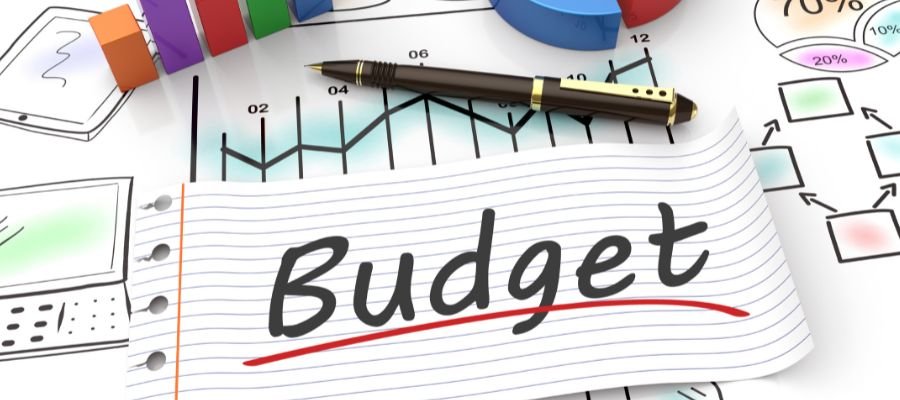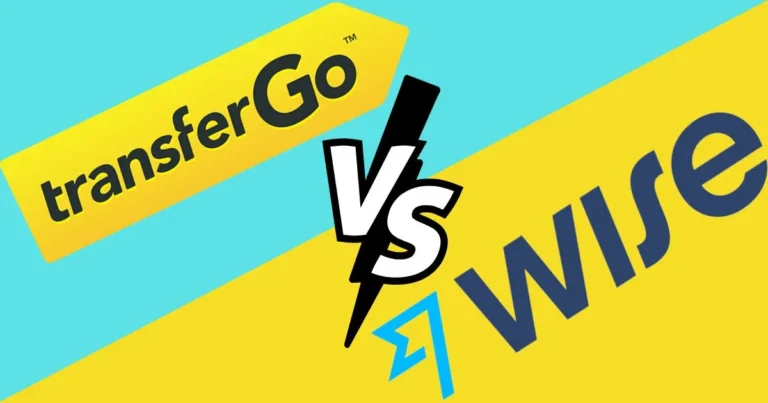
Saving money is something that people of all ages and income levels should do. This is a critical step to take if you want to secure your financial future. Saving money can be difficult, especially with so many daily expenses and temptations to spend money. However, the advantages of saving money are well worth the effort. We’ve compiled a list of the top 10 brilliant money-saving tips to make saving a little bit easier for you.
There are numerous reasons to save money, which may vary from person to person. Here are some common reasons why you might need to save money:
- Build a financial cushion for emergencies
- Achieve financial goals
- Purchase an asset like a car or a house
- Save for vacation
- Helping others
- Saving for college/university
- To be debt-free
Related posts: How to Save $10K FAST (7 Simple Steps)
Set saving goals
Setting savings goals is an important step to take if you want to save money. It can help you stay motivated and on track by giving you a specific goal to work toward. When it comes to saving, it’s critical to be specific and realistic. Set a specific goal, such as “save $500 for a down payment on a car by the end of the year,” rather than a broad goal like “save more money.”
It’s also critical to assess your current financial situation and set attainable goals. Setting overly ambitious goals can be demoralizing if they are not met, making it difficult to stay motivated. Overall, setting savings goals can be a helpful tool in achieving your financial goals and building a stronger financial future.
Here are some steps that you can take to set effective saving goals:
- Determine your financial priorities
- Set specific and measurable goals
- Set achievable goals
- Set a timeline
- Review and adjust your goals as time goes by
Pay off debts

When saving money, debt repayment should be a top priority. High-interest debt, such as credit card debt, can quickly eat away at your savings if left unchecked. By paying off debts first, you can save money on interest payments and free up more of your income to put toward your saving goals.
Furthermore, the psychological boost of paying off debts can be motivating and help you in staying focused on your financial goals.
There are several strategies you can implement when paying off debt; including creating a debt repayment plan, consolidating your debts, and negotiating with creditors.
By taking steps to pay off your debts, you can lay the groundwork for greater financial stability and make it easier to meet your savings goals.
Automate savings
Savings automation can be a powerful tool for assisting you in meeting your financial objectives. By setting up automatic transfers from your checking to your savings account, you can ensure that you are consistently saving a portion of your income. This is especially useful if you struggle to save money on your own or if you have a habit of spending money as soon as you get it.
Saving automatically is also convenient because it requires little effort on your part: you don’t have to remember to transfer money manually or make a conscious decision to save each month.
Automating your savings can also help you save more money over time by allowing you to take advantage of compound interest, which is the interest earned on your savings plus any additional interest earned on that interest.
Stick to a budget

Saving money can be difficult, especially if you have a tendency to overspend or if you have a lot of expenses. Budgeting is an effective way to save money.
A budget is a plan that outlines your income and expenses and allows you to manage your money more effectively. Sticking to a budget allows you to keep track of how much money is coming in and going out, and make adjustments as needed to ensure that you are saving money.
You can save more money and attain your financial goals more effectively if you decide to stick to a budget. It may be hard to get started, but the long-term benefits of creating and sticking to a budget are well worth the effort.
Creating a budget is simple; there are many tools available today to help you track your expenses. Mint is one good example of such tools. What is important, however, is that you stick to your budget. Only by sticking to your budget will you be able to meet your savings goals. Here are 11 ways to help you stick to your budget.
Track your expenses
Keeping track of your expenses is an essential part of saving money. You can identify areas where you can cut back or save more money by keeping track of where your money is going. Here are some tips for keeping track of your expenses:
- Keep receipts: Keep all receipts and use them to keep track of your spending. This can assist you in determining where your money is going.
- Make use of budgeting apps: There are numerous budgeting apps available to help you keep track of your expenses. These apps frequently allow you to categorize your spending so you can see where your money is going.
- Review your bank statements: Examining your bank statements will help you see where your money is going. This way, you will be able to identify any recurring expenses or unexpected charges that you may not be aware of.
Tracking your expenses takes time, but it’s a necessary step toward saving money. By keeping track of where your money is going, you can identify areas where you can cut back or save more, and make budget adjustments as needed.
Cut out unnecessary expenses
Among these top 10 brilliant money-saving tips, cutting down on unnecessary expenses is one of the best ways to stay on top of your savings game. This is an effective way to save money.
Start by making a list of all of your expenses. Then, divide your expenses into two categories: essential and non-essential. You may decide to cut back on some non-essential expenses that you do not use. These expenses may include unused gym, TV, or Netflix subscriptions. To save more money, you must cut out such expenses.
There are a lot of other ways you can use to cut down expenses, these may include;
- Finding free or low-cost alternatives
- Just being mindful of your expenses
- Negotiating prices
- Avoiding impulse buying
- Setting spending limits
Increase your income
If you’re reading this, it’s obvious that you want to have more money saved up by the end of the year. But let me ask you a question: if you only make $1,000 per month, do you think it’s possible to save more than $1000 a month? The answer is undoubtedly no. You can only save more money if you focus on increasing your monthly income. The more money you have, the more you will be able to save.
The good news is that you can have multiple sources of income. Some of these income streams are very easy to run, you can even start without investing anything. All you need to do is grow one at a time. If you want to be able to save more, you must have more than one source of income. Here are some ideas for earning more money to supplement your income:
- Start a side hustle or small business. This can range from freelance work to starting an online store.
- Change jobs or negotiate a raise with your current employer.
- Invest in the stock market or real estate. This can provide a significant return on investment over time.
- Rent out a room on Airbnb or other vacation rental platforms.
- Offer a service that you can do in your spare time, such as pet sitting or tutoring.
- Sell items you no longer need or use online on sites like eBay or Craigslist.
- Participate in online surveys or sign up to test new products.
- Drive for a ride-sharing service like Uber or Lyft.
- Monetize your hobbies or interests by writing blogs, uploading videos to YouTube, or creating content online.
- Create and sell your own digital products such as e-books, courses, or apps.
Keep money in high-yield savings accounts
In simple terms, a high-yield savings account is one that offers higher interest rates compared to traditional bank savings accounts. These types of accounts are often provided by online banks, which have less overhead costs. Typically, a high-yield savings account is considered to be one that offers an interest rate of 2% or higher. This is because traditional brick-and-mortar banks typically offer very low-interest rates, which rarely exceed 1%.
Opening and managing a high-yield savings account is straightforward. If you are interested in learning more about these types of accounts and are considering opening one, read this comprehensive high-yield savings accounts guide by Forbes, I believe it will be very informative and helpful.
Use cash when shopping
Here are a few of the many reasons why paying with cash might help you save money when shopping:
- Cash limits your spending: When you pay with cash, you can really see how much money you have left, and once you’ve spent it, there’s no more money left to spend. This makes it easier to stick to a budget. It’s simple to lose track of your spending while using a credit or debit card.
- Forces impulse control: Because you have to part with physical money when you use cash, you have to think more carefully about whether you really need something. People who use debit/credit cards, on the other hand, tend to spend more impulsively because the money does not seem real.
- Aids in avoiding credit card debt: When you pay with cash rather than credit cards, you are less likely to overspend and incur credit card debt.
- Makes you to be mindful of your spending: When you pay with cash, you are forced to be more conscious of your spending and to consider each purchase more carefully. This can assist you in identifying unnecessary expenses and making better overall financial decisions.
It is important to note that using cash alone may not be the best solution for everyone, and there may be times when cash is not the best option, such as when shopping online or traveling abroad. Therefore, the most important thing is to plan and be mindful of your spending.
Minimize eating out
Eating out can be bad for saving money because it can be more expensive than cooking meals at home. When you eat at a restaurant, you are paying not only for the food, but also for the restaurant’s overhead costs, such as rent, utilities, and staffing. Furthermore, restaurant portions are frequently larger than what you would typically prepare at home, resulting in food overspending.
It’s always fun to go out to eat with friends, but don’t make it a habit. Eating out can slowly eat away at your income without you even realizing it. So, instead of eating out frequently, you can prepare your meals at home. Moreover, home-prepared food is far healthier.
Also, avoid things like always getting coffee at overpriced coffee shops like Starbucks. You can make coffee at home for less than 50 cents, instead of paying 5 to 10 dollars for a cup of coffee at a coffee shop.
With that said, dining out is still an enjoyable and worthwhile experience and should not be avoided entirely. However, it should be done sparingly in order to balance our social and financial needs.
Rules to help you save money
The 30-day Rule
What is the 30-day rule for saving money?
This is a simple rule which requires that you wait for 30 days before buying something you want. Instead of buying it right away, put the money you would have spent into a savings account. After 30 days, if you still really want the item, go ahead and buy it. If you don’t want it anymore, keep the money saved in your account. This can help you save more money over time.
The 50/30/20 Rule
What is the 50/30/20 rule?
The 50-30-20 rule is a budget plan that requires that you divide your money for different needs. It suggests that you should use 50% of your money for important things like rent, bills, and food. 30% of your money can be used for things you want but don’t really need, like entertainment or eating out. The remaining 20% should be saved or used to pay off any debts you have.
The 40/30/20/10 Rule
What is the 40/30/20/10 rule?
This rule entails that 40% of your income is set aside for savings, necessary expenses such as food, rent, and bills take 30%, 20% goes towards things you want, like going out for fun or traveling and 10% is spent on contributory activities such as donations, gifts, charity, and tithes.
This rule is especially useful if your income is higher or if you want to save a larger portion of your earnings.
The 80/20 Rule
What is the 80/20 budgeting rule?
It is a simple rule that requires that you save at least 20% of your income and don’t spend more than 80% of your income. It helps make savings a priority and limits one from spending all their income.
Top 10 brilliant money-saving tips: Conclusion
Have you been struggling to save money? The ten brilliant money-saving tips mentioned above will assist you in developing the habit of saving. Not only that, but if you struggle with consistency in your savings, you will find useful information above that will help you stay consistent.
One thing I didn’t emphasize enough is the importance of investing if you want to increase your savings and earn more money. To learn more about investing, read this article on how to invest $1,000.







